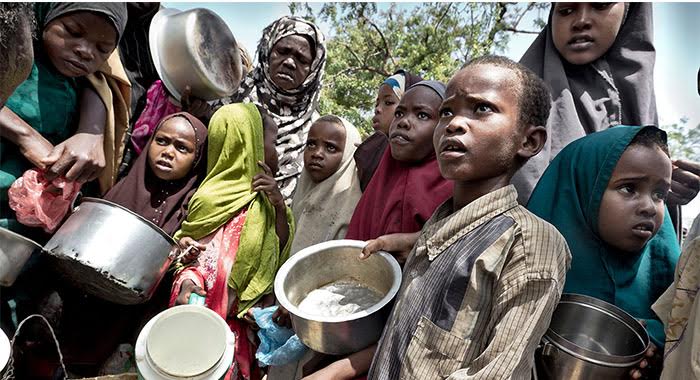Breaking News
Food crisis looms: 31 million Nigerians may face acute hunger in 2025

A coalition of international humanitarian organisations has warned that Nigeria is on the brink of its worst food and nutrition crisis in history, with about 96,000 children in six northern states at risk of death from acute malnutrition in the coming months.
The alarm was raised on Thursday in Abuja by the Nigerian International Non-Governmental Organisations Forum, during a joint press conference attended by leading humanitarian agencies including Action Against Hunger, Save the Children International, and Plan International Nigeria.
The Country Director of Action Against Hunger, Nigeria, Thierno Diallo, described the situation as a “nationwide emergency”, warning that over 31 million Nigerians could face acute food insecurity by 2025, making it the largest food crisis in the world.
“In the next three months, an estimated 600,000 children under the age of five will be at risk of severe acute malnutrition in six northern states, Adamawa, Borno, Katsina, Sokoto, Yobe, and Zamfara.
Without access to lifesaving treatment, 96,000 of these children are likely to die. That’s over 1,000 children dying every day,”
Diallo said.
He added that 32 percent of Nigerian children under five are stunted, with rates exceeding 50 percent in some parts of the North-West, while over 800,000 pregnant and breastfeeding women are also at risk.
“Hunger and malnutrition represent not only a humanitarian emergency but a crisis of rights.
Food security and nutrition must be treated as non-negotiable for child survival, growth, and future productivity,” Diallo stressed.
The warning echoes recent alerts from global agencies.
The United Nations Children’s Fund (UNICEF) reported in June 2024 that 11 million Nigerian children under five are experiencing severe food poverty, consuming less than two of the eight essential food groups, making them 50 per cent more likely to suffer from life-threatening wasting.
Similarly, the World Food Programme (WFP) warned in November 2024 that 33 million Nigerians could face acute food insecurity by 2025 unless urgent action is taken.
Both agencies linked the worsening crisis to persistent conflict in the North, inflationary pressures, and climate-induced shocks disrupting food production and livelihoods.
The Country Director of Save the Children International (Nigeria), Duncan Harvey, said the joint statement was endorsed by more than a dozen international organisations, all united in sounding the alarm.
“This is an urgent call for attention to the seriousness of the food security and malnutrition crisis affecting millions of Nigerians,” Harvey said.
He noted that despite repeated warnings, the scale of humanitarian assistance and political will had fallen short of the country’s growing needs.
The Director of Programme Quality and Influencing at Plan International Nigeria, Helen Idiong, urged the Federal Government and donors to increase funding and demonstrate stronger political commitment to tackle the crisis.
“Severe malnutrition has irreversible effects on physical growth, cognitive development, and economic productivity, all critical for building national human capital,” Idiong explained.
She called for greater investment in long-term development to break Nigeria’s recurring cycle of hunger and malnutrition.
“Food and nutrition security must be treated as a fundamental human right. Only through sustained political will, resource commitment, and collaboration can we reverse this alarming trend,” she added.
Forum calls for practical, coordinated response
The INGOs urged government agencies and development partners to adopt shock-responsive social safety nets to protect vulnerable households from future crises.
They also recommended scaling up food assistance, nutrition treatment, and livelihood support, alongside strengthening collaboration on Cadre Harmonisé and Integrated Food Security Phase Classification frameworks for better coordination.
“Nigeria cannot afford to look away,” the Forum said.
“Every child’s life lost to hunger is a failure of collective responsibility.”




















